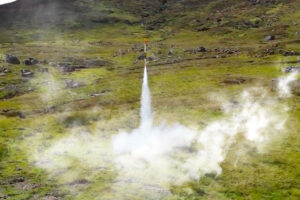Scotland & Space: Satellite Production
6th Feb 2020
Scotland has long been regarded as one of the prominent destinations for shipbuilding. However, this has slowly been changing over the years, with satellites taking over this part of the United Kingdom. Today, Glasgow is responsible for creating more satellites than any other city in Europe. These Scottish built satellites are responsible for a wide range of tasks like global positioning and weather forecasts. Yet, it is incredible that few could predict this seismic industrial shift in only a couple of decades.
The Beginning of Scotland’s Space Industry
Scotland came up with the first-ever satellite only in the last decade. It was a significant impetus for the nation to move away from the dependence on the oil industry for jobs and revenue. In just two years, Scotland was well on its way to producing more satellites than any other country in Europe.
Fast Progress
This rapid progress in the world of satellites has led Scotland to take the lead in the creation of a home-grown space industry, which may go some way towards plugging a gap in economic activity created by Brexit. It is expected that Scotland will have a tough time in terms of bidding on contracts from the Galileo positioning system, which is worth around £9 billion, however it is likely to see quite significant interest in its soon-to-be-built launch pads.
Massive Contribution
There has been a significant rise in turnover when it comes to the space sector in Scotland. Since 2010, the industry has grown more than 70%, and it is now worth almost £3 billion. It is anticipated that the industry will grow to a whopping £4 billion by the end of this decade. There has been rapid progress in employment statistics, and in the space industry Scotland now has more than 7500 personnel in a variety of space-related roles. US satellite firm Spire Global and Swedish AAC Clyde Space are two of the most prominent players and have both seen considerable increase in demand. Clyde Space is responsible for coming up with the first Scottish satellite.
Data-Driven Capital
These companies have been flocking to Scotland due to the readily available talent pool, locality to world class universities and the presence of a number of tech hubs. Today, 130 organizations in Scotland deal with space exploration. There are more than 80 space industry firms from the rest of the UK that have attempted to exploit the space solutions that Scotland has to offer.
All these companies are trying to find space in a very competitive industry. There has been a growing demand for satellite data so a massive influx of new vehicles is expected in the very near future. Humans have learned to use satellites in so many ways and have come up with solutions to find and monitor natural resources around the globe, for example. There is also huge demand for satellites to monitor crops, forests and the oceans.
Since satellite data is very crucial in driving his new industrial revolution, Scotlands space industry has been getting a makeover. The University of St Andrews hosts the most powerful space telescope in the United Kingdom. Edinburgh University is also playing a huge role in growing the Space industry in Scotland and even have a dedicated Space Hub.
Dedicated Factories to Fuel Growth
A significant part of the growth story is coming about through designated factories that are trying to build individual components. For example, Orbex is a private start-up that is involved in building rockets that will eventually launch satellites into orbit. And recently, Edinburgh-based, Skyrora, announced results from live tests of a rocket fuel created from non-recyclable plastics, which will be used to power their rockets, manufactured at their facility outside Edinburgh.
It is expected that many more facilities will crop up, such as for 3D printing (both Orbex and Skyrora have revealed that their rocket engines are 3D printed). The industry will also need to see production facilities for the construction of the rocket vehicles’ main body, which would likely be done by enormous carbon fiber winding machines. This is likely going to bring about a cascading effect, with many new industries cropping up. This is industry 2.0.
Conclusion
Scotland has always prided itself on being a country that thrives on a handful of industries. Even though shipbuilding has been a massive part of the country’s history, and to an extent still is, it is clear that Space is opening up a bright new future with more and more space projects appearing on the horizon. At this rate, it may soon become the space capital of the world.






Thank you for your comment! It will be visible on the site after moderation.